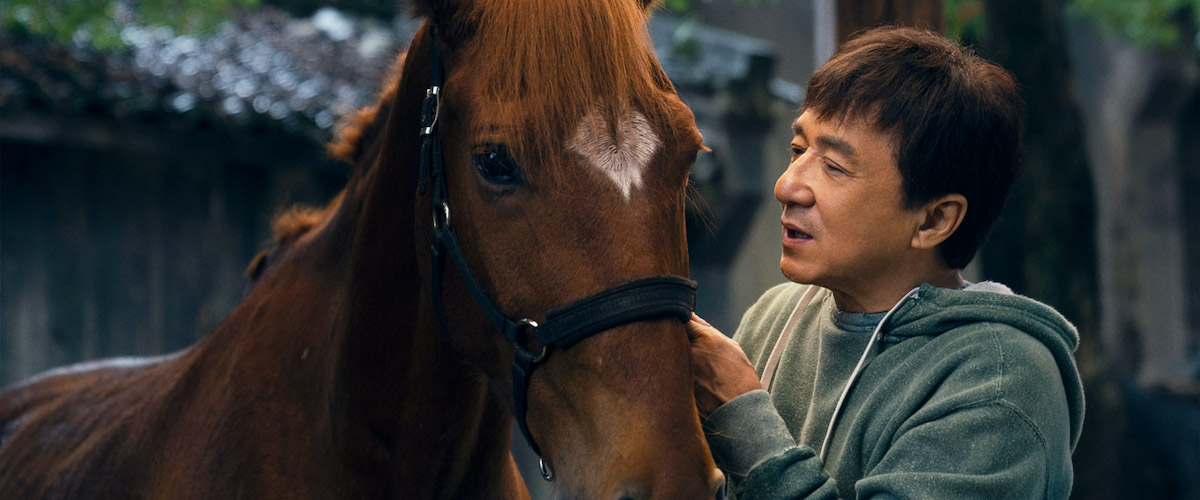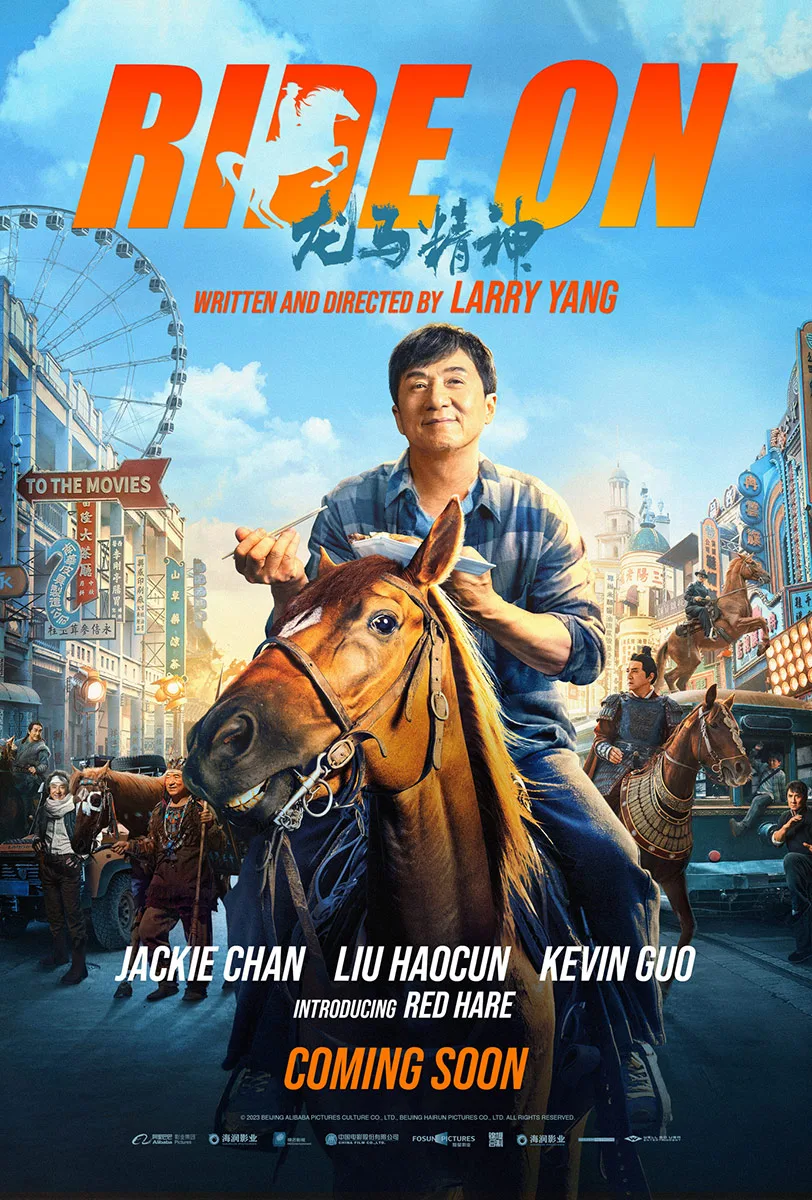Jackie Chan plays a forgotten stuntman in “Ride On,” an unusual and ungenerous action drama about a seasoned pro who tries to mount a comeback with help from his beloved horse Red Hare. Chan plays Luo Zhilong, a talented and generous fall guy forgotten and abandoned by the moviemaking industry.
Luo repeatedly moons over a highlight reel of Chan’s classic death-defying stunts. Still, almost nobody in the movie business remembers Luo, except the young stars whom Luo supported along the way. The ringed bags under Chan’s eyes suggest that Luo could use a little reciprocity; he gets some, but it’s not what he really needs.
In real life, Jackie Chan is 68 years old. He hasn’t always aged gracefully, in movies or elsewhere, but he’s obviously been thinking about his legacy. “Ride On” is an uneven swan song and a sometimes fun showcase for Chan, an action star with a legendary catalog of real-life injuries.
His most recent stand-in, Luo, doesn’t ultimately get the send-off he hopes for because of obstructive and/or uncaring contemporary filmmakers. Chan’s fans might also feel let down despite some satisfying fight scenes, credited to action director He Jun.
“Ride On” isn’t a generic beat-em-up but a stingy elegy to a bygone era of filmmaking and an unbelievable melodrama about an older artist and his estranged daughter. A lot of emotional baggage is attached to “Ride On,” and very little of it gets unpacked.
Viewers might find it hard to separate Chan’s eager-to-please persona from his real-life behavior. In recent years, Chan has been criticized for his pro-Beijing politics and his strained relationships with both his son Jaycee and his daughter Etta Ng, the latter of whom has accused both of her biological parents of discriminating against her because she’s gay. Chan’s avuncular on-screen character now seems threatened by tabloid stories about Ng’s temporary homelessness, as well as Jaycee’s six-month prison stay (for harboring two pot-smoking friends in mainland China), not to mention that one time Jackie said he would not give his son any inheritance, to keep his thirty-something son from becoming lazy. In this harsh light, “Ride On” looks like a half-hearted stab at damage control.
If you squint, you can sometimes see the best of Chan in Luo, a dead-beat dad who lives in a loft over his horse’s unkempt stable. Luo struggles to keep Red Hare, first after local debt collector Dami (Andy On) tries to take the horse as collateral, and then after two dweeby representatives of the DY Capital corporation try to claim Red Hare as part of their boss’ property, following a messy lawsuit involving Red Hare’s previous owner (not in this movie).
Red Hare also distracts viewers from Luo’s struggle to reconnect with his college-age daughter Bao (Liu Haocun), who asks her wimpy lawyer boyfriend Mickey (Kevin Guo) to defend her dad—and his horse—in court. Being an understandably avoidant personality, Luo processes his feelings through his work. Some job opportunities present themselves after a video of Luo fighting Dami and his gang makes Red Hare internet famous.
Unfortunately, Luo’s relationship with Bao only softens him in fits and starts. They share a tender moment watching old clips from Chan’s films. “Daddy, you were awesome,” she says. Then they cry together, which is less awesome.
Chan’s presence and well-honed clowning make Luo at least partway endearing, as does a camera-ready horse (or horses, probably). But Luo is more convincing as a cranky outlet for old man Jackie Chan’s discontents, like when Luo drunkenly boasts about his professional accomplishments to Mickey’s bougie parents, Donald and Daisy.
Chan also makes time to dismiss other filmmakers who, in their eternal quest to stay on budget and schedule, don’t have time to coddle a below-the-line has-been. Filmmaking was different back in Chan’s day. Now he seems to understand that the past wasn’t so great for everyone, as we see in a couple of unconvincing but pivotal flashbacks involving a younger Bao and a wig-clad Jackie, I mean Luo.
When I interviewed Chan, he spoke with humor and some nostalgia about his work back in the day, when, if you wanted a crane shot, you had to climb a ladder on the edge of a cliff. I don’t see as much warmth in “Ride On,” but Luo’s three fight scenes with Dami are satisfying. The closest that Luo comes to an emotional breakthrough—an overwrought life-flashing-before-his-eyes moment during a big stunt—suggests an emotional connection to Red Hare that the rest of the movie never develops. Bao is also credited with this canned revelation, which adds to the dramatic strain.
Still, if Luo were played by anybody but Jackie Chan, you might not have come that close to crying. Uncle Jackie reveals nothing new about himself here, but he occasionally plays the hits. For some, that might be enough.
Now playing in theaters.




















